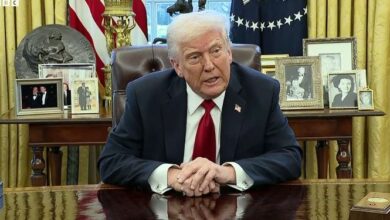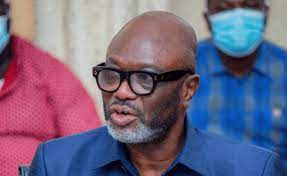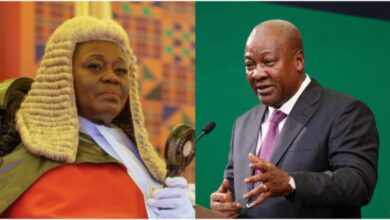
The remarks made by Nana Amoasi VII, Executive Director , Institute for Energy Sector [IES ]reflect the deep concerns many Ghanaians share about the current state of the energy sector and the ongoing issue of Dumsor (power outages). His statement underscores some of the critical challenges facing the country’s power sector. Here’s an analysis of the key points mentioned in his lament:
Hon. John Abdulai Jinapor’s warning about the lack of sufficient fuel in stock for power generation is alarming. Ghana’s reliance on imported fuel (such as oil and gas) for thermal power plants means that any disruption in fuel supply can lead to immediate power shortages.
This issue is particularly concerning given that the country’s energy generation mix is heavily dependent on thermal power (natural gas and oil) and hydropower. When fuel supplies run low or become too expensive, it can result in a breakdown of the power generation process, leading to Dumsor.
Nana Amoasi VII highlighted the 2.5 billion Ghana cedis debt in the power sector, which indicates a severe financial crisis. This amount reflects the unpaid debts to key energy institutions like WAPCO (West African Power Pool), GMPC (Ghana National Petroleum Corporation), Ghana Gas, VRA (Volta River Authority), and IPPs (Independent Power Producers).
These institutions are essential to power generation, distribution, and fuel supply. When the government owes them significant sums, it impacts their ability to continue supplying energy efficiently. Unpaid debts also affect their financial stability and prevent new investments in energy infrastructure or fuel procurement.
The debt issue is a significant barrier to resolving the energy crisis and contributing to the persistence of Dumsor.
Nana Amoasi VII expresses concern that Ghanaians will no longer accept excuses for the energy crisis. Over the years, many citizens have endured power outages and have heard various promises and explanations from the government regarding the causes and solutions to the problem. This has led to frustration, as people no longer see Dumsor as a temporary issue, but rather as a recurring, unresolved crisis.
He points out that many Ghanaians voted for the current government due to the hope they placed in President Akufo-Addo and the promise of effective governance. However, with the ongoing energy challenges, people are beginning to question whether those promises will be fulfilled.
Nana Amoasi VII stresses that if the government had the goodwill to prioritize and clear its debts with key energy stakeholders like ECG (Electricity Company of Ghana), it could potentially end the persistent power cuts. The financial struggles of these agencies, many of which are critical to energy generation, stem from their inability to receive the payments owed to them.
Ensuring the financial health of these companies is crucial to improving the energy situation. Without settling the debts and strengthening the capacity of these institutions, it is challenging to guarantee a stable and reliable power supply.
The ongoing issue of Dumsor is linked to structural problems in the energy sector, including the inefficiency of revenue collection, poor financial management, and delays in implementing crucial reforms. While energy generation capacity has increased over time, factors like inadequate fuel supply, poor debt management, and outdated infrastructure continue to cause instability.
The call for immediate action to clear the debts and improve the financial status of the sector suggests that fixing the crisis will require a concerted effort from both the government and key stakeholders in the energy sector.
To address these deep-rooted issues and end Dumsor, several actions could be considered:
Debt Settlement: The government should prioritize clearing the debts owed to energy companies. This would ensure these entities can function effectively and maintain a stable power supply.
Diversification of Energy Sources: While thermal and hydropower are crucial, greater investment in renewable energy (such as solar, wind, and biomass) would help mitigate the impact of fuel supply issues and reduce Ghana’s dependence on imported fuels.
Infrastructure Investment: Significant upgrades to the power grid, transmission lines, and distribution networks are necessary to reduce losses and improve efficiency in power delivery.
Better Fuel Management: The government needs to ensure that there is always sufficient fuel for thermal plants. Diversifying fuel sources, such as increasing LNG imports or developing local fuel resources, would help stabilize supply.
Energy Sector Reforms: Comprehensive reforms in the management of the energy sector would go a long way in ensuring that energy policies are effectively implemented, and resources are allocated more efficiently.
In summary, the energy crisis, marked by ongoing Dumsor, is not simply a result of a lack of generation capacity but is also deeply tied to financial mismanagement, inadequate fuel supplies, and the debt burden in the sector. Ghanaians, as Nana Amoasi VII indicates, are losing patience with the recurring crisis and are hoping for concrete solutions from the government. If the debts are cleared and reforms are implemented, there is potential for stabilizing the energy sector and, ideally, ending Dumsor once and for all.
Story by: Eunice Nanayaa Opoku




